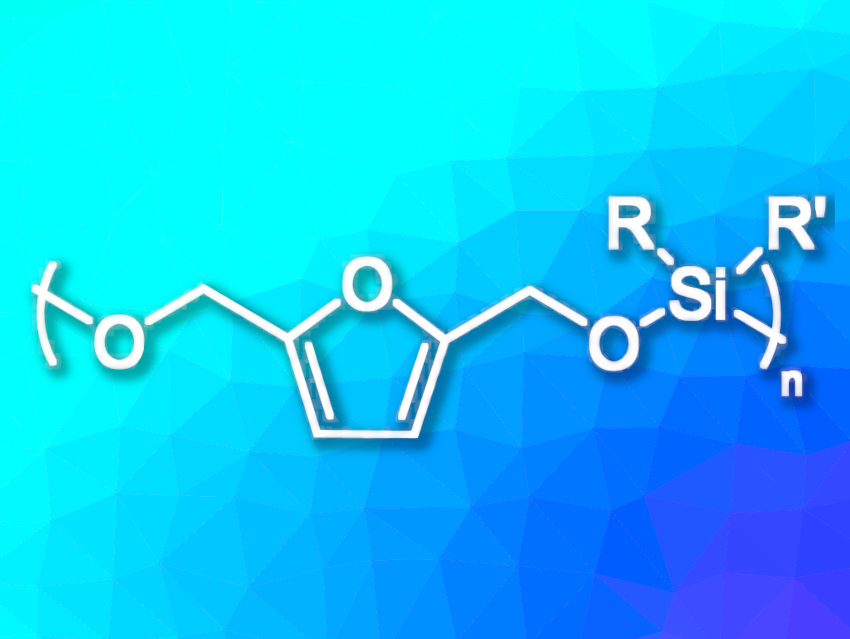Improved synthetic strategies can be useful for the sustainable management of end-of-life plastics. In contrast to mechanical recycling, chemical recycling preserves the quality of the recycled product and allows depolymerization into monomers or conversion into useful chemicals.
Christophe M. Thomas, PSL University, Chimie ParisTech, Paris, France, Salvador Conejero, Consejo Superior de Investigaciones Científicas (CSIC) and Universidad de Sevilla, Spain, and colleagues have discovered an efficient synthetic method for the transformation of renewable hydroxyaldehydes into poly(silylether)s (PSEs, pictured). Under mild conditions, low loadings of well-defined platinum(II) complexes with N-heterocyclic carbene (NHC) ligands catalyzed the formation of a variety of silylated (co)polymers from hydrosilanes and biobased hydroxyaldehydes, such as hydroxymethylfurfural, vanillin, and syringaldehyde.

The synthesized polymers have low glass transition temperatures (Tg) ranging from –60 °C to 29 °C. The polymers are robust and degradable, with routes to chemical recycling via acid-catalyzed hydrolysis or methanolysis. These attributes highlight the potential of the polymers as sustainable materials, according to the researchers.
- Highly Efficient Synthesis of Poly(silylether)s: Access to Degradable Polymers from Renewable Resources,
Hugo Fouilloux, Marie‐Noelle Rager, Pablo Ríos, Salvador Conejero, Christophe M. Thomas,
Angew. Chem. Int. Ed. 2021.
https://doi.org/10.1002/anie.202113443
Also of Interest
- Chemical Versus Mechanical Recycling of Plastic Waste,
ChemistryViews 2020.

![Synthesis of [c2]Daisy Chains via Mechanochemistry](https://www.chemistryviews.org/wp-content/uploads/2025/04/202504_RotaxanesWithSolidStateMechanochemistry-125x94.png)

